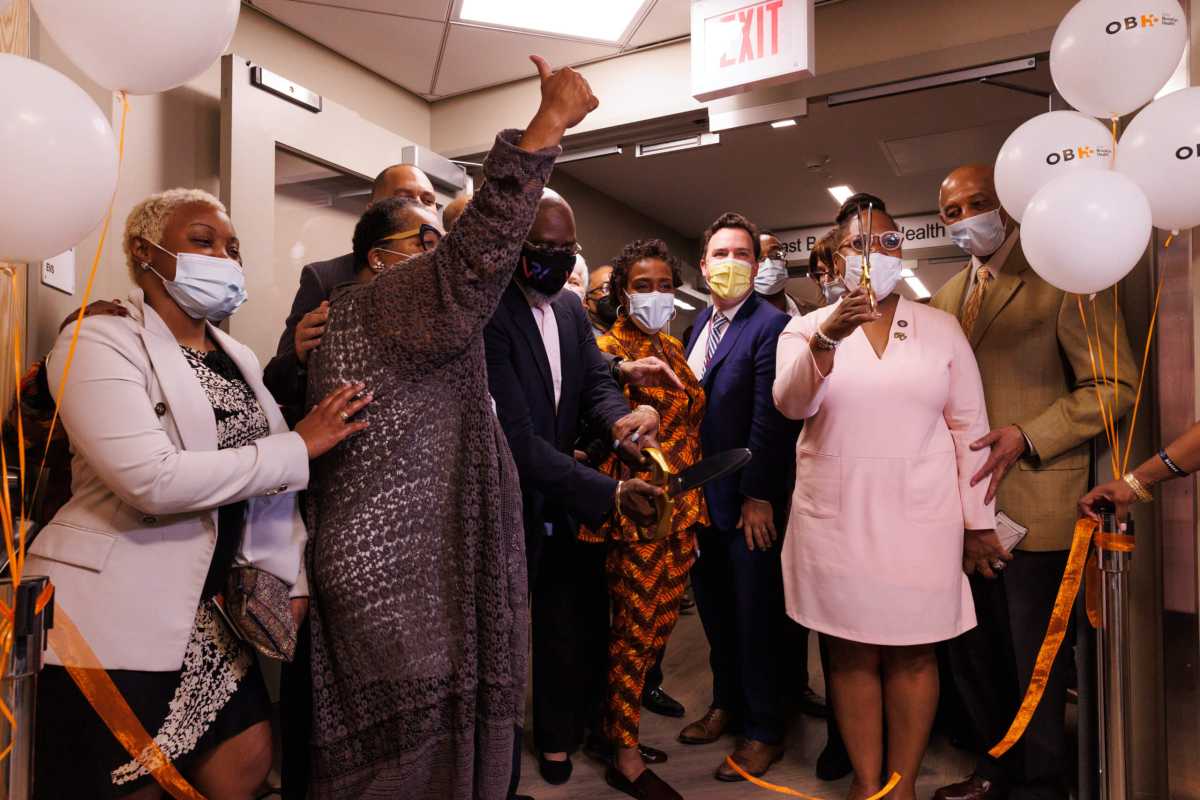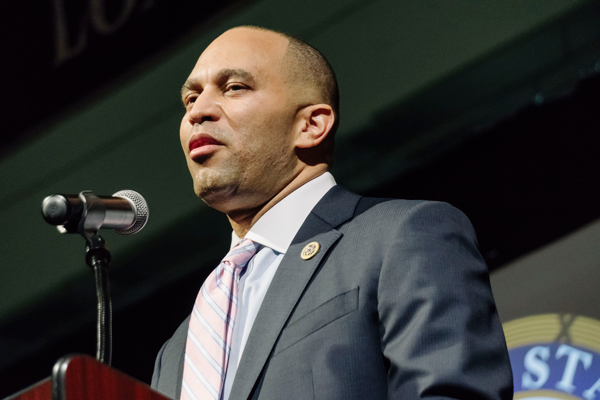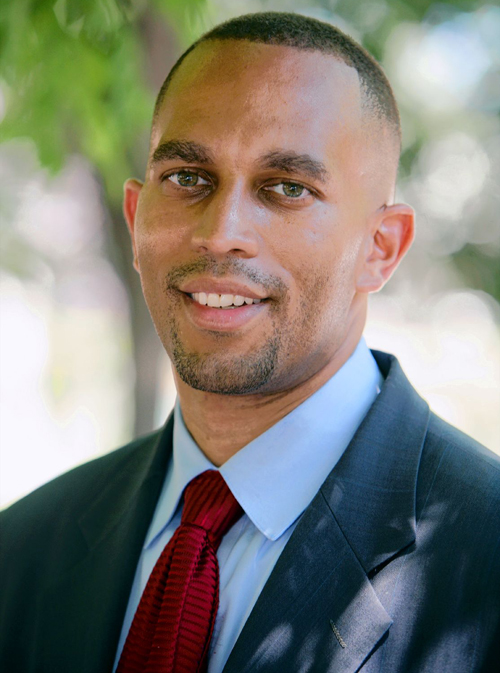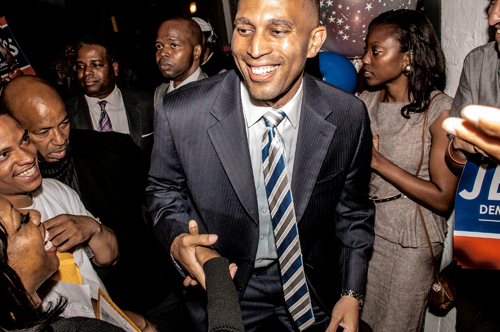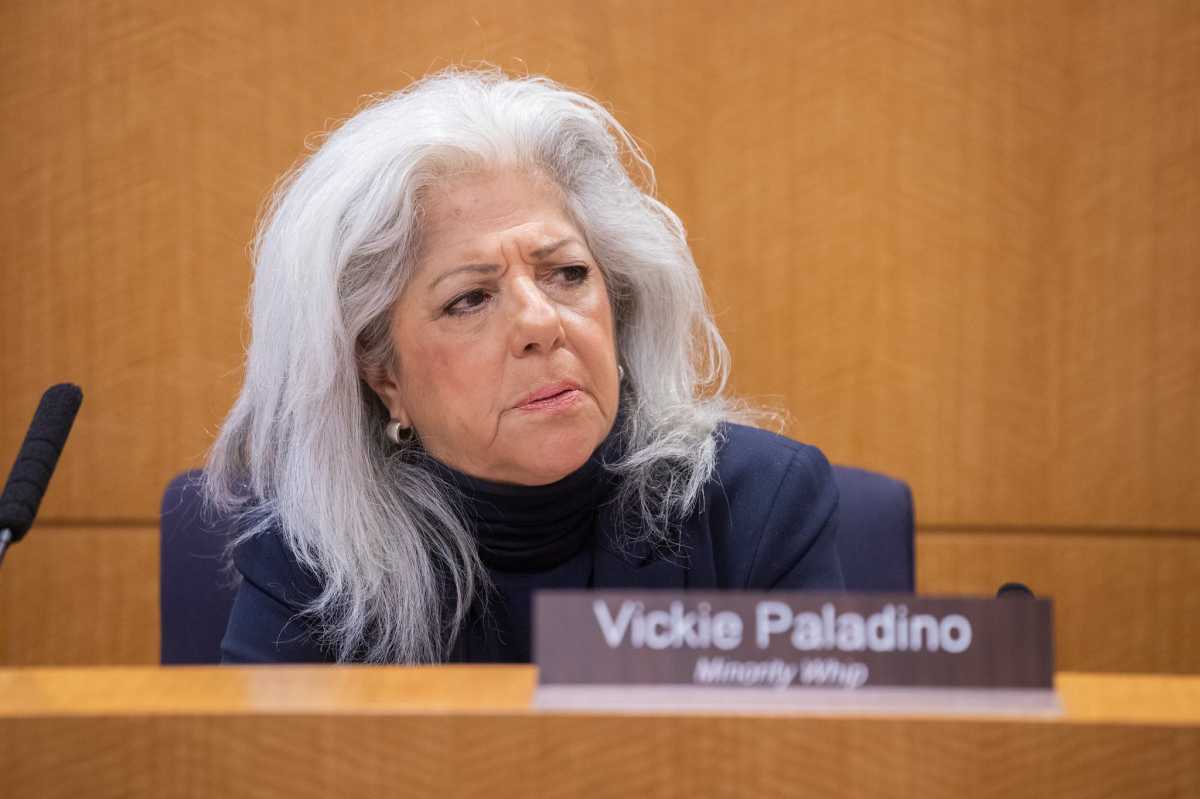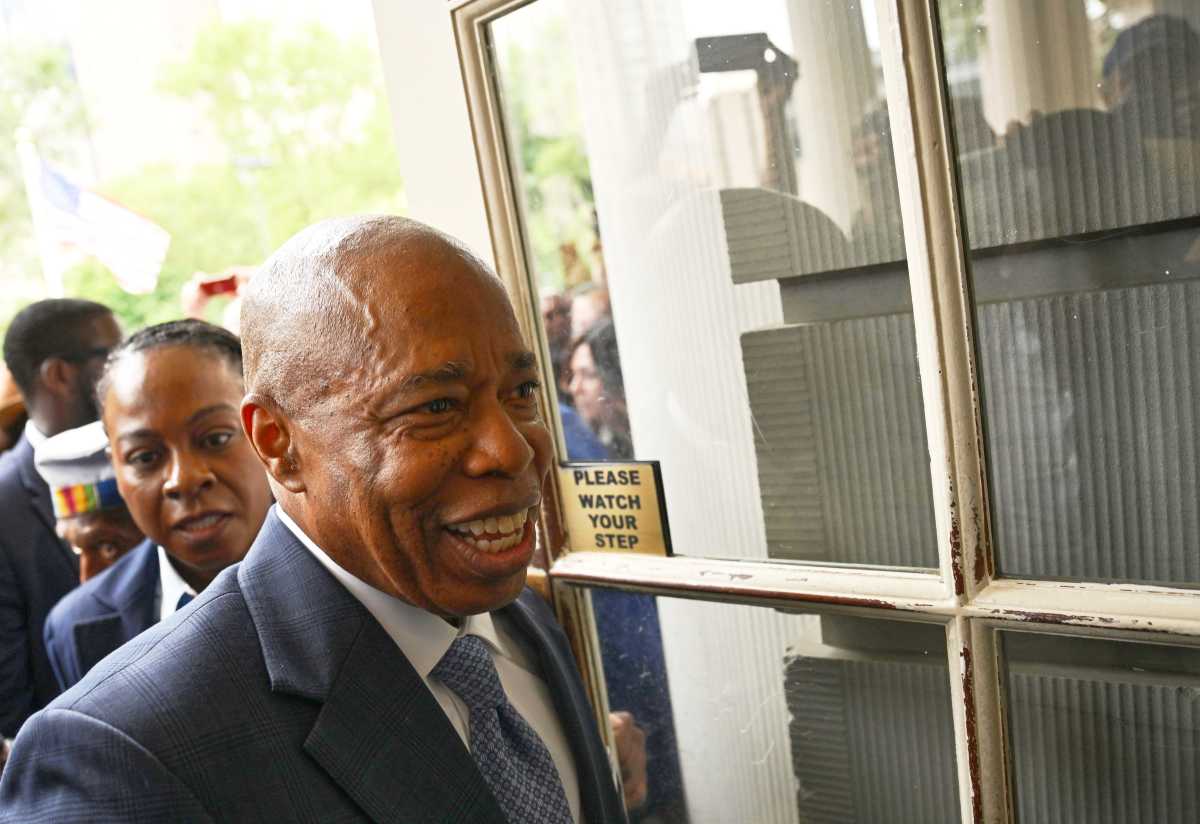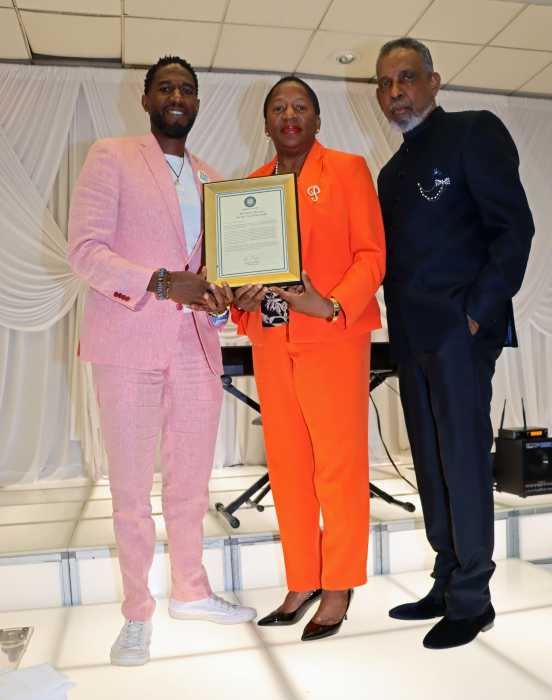Interfaith Medical Center is getting ready to welcome patients to its newly-renovated Behavioral Health unit this week, after celebrating the long-awaited refurbishment with a ceremonial ribbon-cutting on Thursday.
“You can’t help but walk in here and feel that it’s caring, it’s welcoming, and that this is a safe place to recover and get better,” said Ann Sullivan, commissioner of the state’s Office of Mental Health, after a tour of the floor
The hospital started renovating the roughly 12,5000 square foot unit in March 2020, but work was swiftly derailed and delayed by the first wave of the coronavirus pandemic. Construction finally finished on the sunny new unit last month, and patients will soon be settling into the specially-designed rooms.
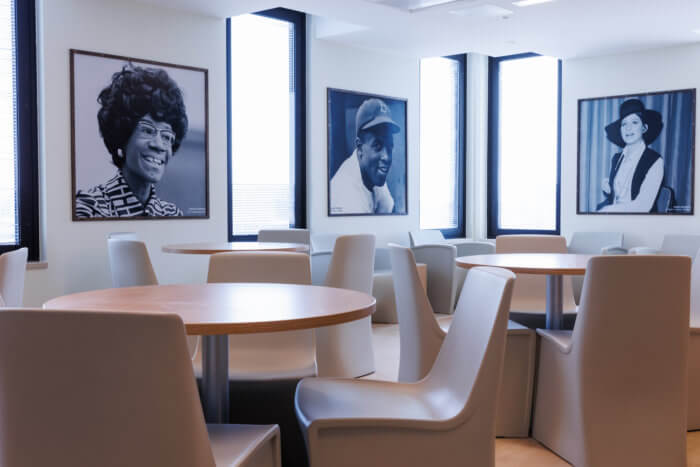
“What we’ve tried to do is create a space that brings joy to both the patients and the folks who care for them,” said LaRay Brown, CEO of One Brooklyn Health, Interfaith’s parent organization. “We want to remind people of place when they come here, and to have pride of place and pride of people.”
Each room in the 24-bed Behavioral Health unit has a private bathroom, and a series of bright community spaces invite patients to gather and socialize. The walls are decorated with framed photographs of New York City legends like former U.S. Representative Shirley Chisholm, Jackie Robinson, and Barbara Streisand, along with huge, high-quality murals of Brooklyn’s most famous landmarks.
“I know that all of you working here are going to be able to make a difference in peoples’ lives, a big difference,” Sullivan said, to the Interfaith staff gathered at the ribbon-cutting.
Interfaith’s adult inpatient psychiatric unit focuses on stabilizing and providing acute treatment for patients with a combination of methods including medication, psychotherapy, group therapy, and family therapy, according to their website. The hospital’s goal is to end the “revolving door” of admissions into psychiatric hospitals, where sick patients are endlessly admitted, released, and re-admitted.
Current patients contributed to the design of the eighth-floor unit, said Jason Hershberger, chairman of One Brooklyn’s department of psychiatry. The most important thing for them, he said, was plenty of sunlight. Large windows in both the patient’s rooms and the communal spaces flood the unit with natural light.
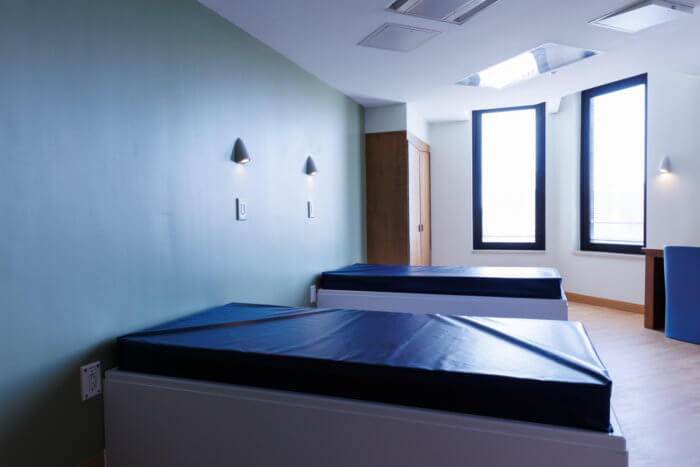
“The patients who are just next door who are going to come over as soon as we’re through with the celebration are going to feel like they just woke up in Oz,” he said.
Outside the inpatient floor, Interfaith also offers intensive outpatient psychiatric programs, a range of mental health services at their Center for Mental Health, and more, including substance abuse detox and maintenance programs.
“This is a place where our people will heal,” said US Rep. Yvette Clarke. “This is a place where our people will receive the services, the insight into their troubles and a way through.”
Clarke said quality-readily accessible mental health care is critical to reduce violence in the city, referencing last week’s subway shooting in Sunset Park, which injured 23 people and resulted in the arrest of suspect Frank R. James, who was charged with terrorism in federal court. James’ defense attorney requested a psychiatric evaluation for her client while he is in federal custody.
“I think about unfortunately the very tragic shooting on the subway system and there is no doubt in my mind that if there were opportunity for that guy, that shooter to receive some healthcare benefit, that perhaps, just perhaps, things would not have come to what we experienced and the trauma we all felt from the actions that he took,” Clarke said.
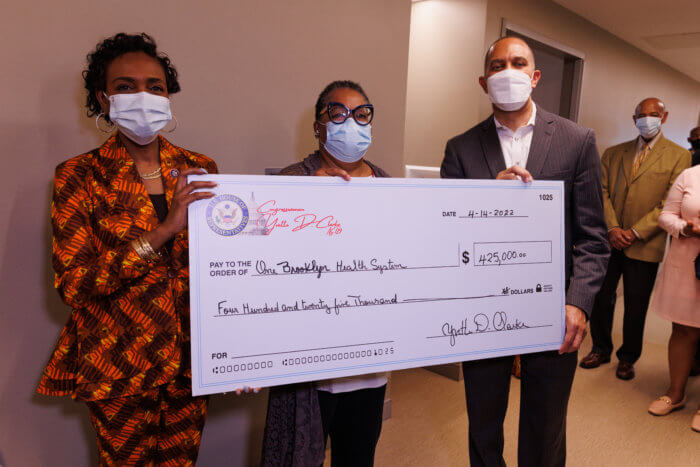
Clarke was joined by her colleague, U.S. Rep. Hakeem Jeffries, to announce a $425,000 federal grant for the Behavioral Health unit.
“As elected officials we’re committed to making sure that just in the same way that you are always there for us as a people in central Brooklyn, we’re going to be there for you,” Jeffries said.
According to Clarke’s website, the money will be used to purchase “life-saving” medical equipment needed to provide acute inpatient care at Interfaith.
“This is a place where they’re going to find comfort, safety and hope,” Hershberger said. “This is a place where you can regroup. Because you can see the sun streaming in through the windows, you can sit on the counter in your bedroom and soak it in while you find yourself again.”


